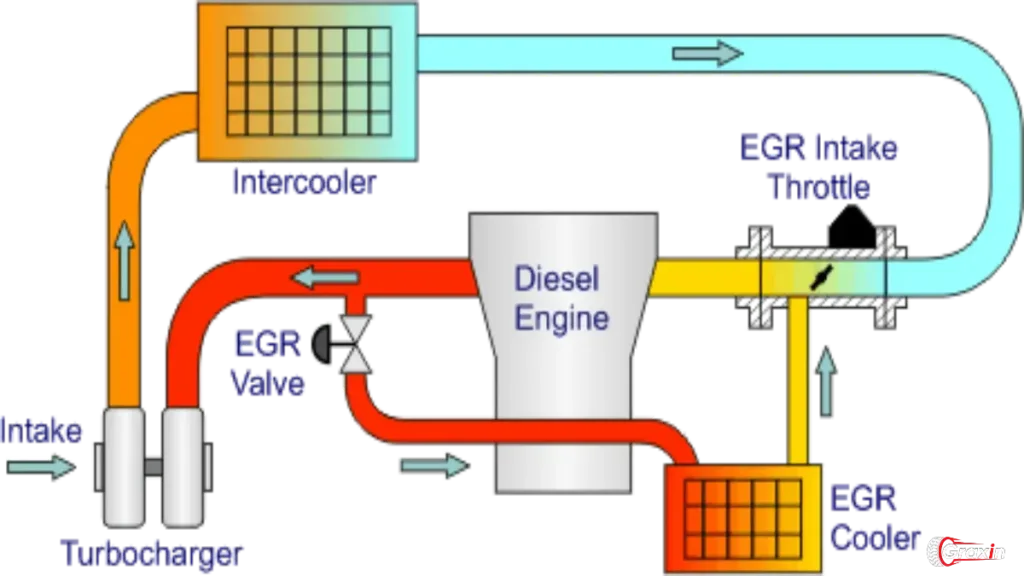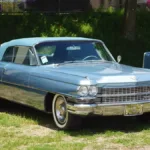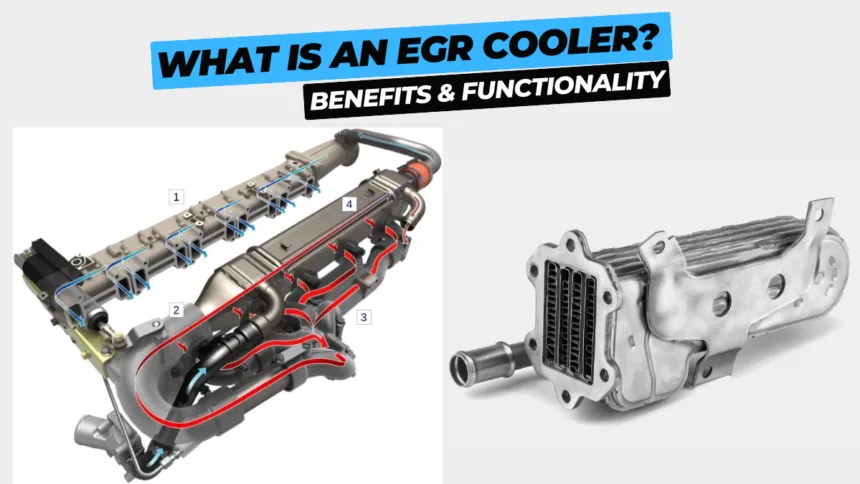This has made the topic of emissions very popular, and most cars these days are designed and fitted with different systems to eradicate pollutants. One such vital component that helps reduce emission is the EGR cooler. What’s it? Why should you care? Let’s just dive into everything there is to know about EGR coolers!
Introduction to EGR Coolers
The world of automobiles has always been on a quest to reduce harmful emissions, and several innovations have been introduced over time to keep the engine in an optimal state while remaining earth-friendly. Of all the components, the EGR cooler is a critical part of an exhaust gas recirculation or EGR system that pays its way back to the environment and your engine.
But not too proud of ourselves. Let’s first understand what an EGR cooler is, how it works, and why you need to have one in your car.
What is an EGR Cooler?
An EGR cooler is basically a heat exchanger used in the cooling of exhaust gasses before they are recirculated back to the intake system of the engine. One of the significant components of an Exhaust Gas Recirculation system, it reduces NOx emissions. In short, it’s something that cools the exhaust gasses coming from the engine and thus cleans up combustion and makes it more effective.
In short, it sucks a small amount of dirty exhaust into it, cools the intake, and then pumps the exhaust back into the engine to run its second pass, which reduces nasty emissions.
How Does an EGR Cooler Work?

Now, let’s get into the nitty-gritty of how this component works.
- Exhaust Gasses Enter the Cooler: As part of the EGR system, a portion of the exhaust gas is rerouted from the exhaust manifold.
- Heat Exchange Process: The hot exhaust gasses pass through the cooler, where it’s cooled down by either engine coolant or air.
- Recirculation of Cooled Gases: The now-cooled exhaust gasses are then sent back into the engine intake manifold to be mixed with incoming air for combustion.
The cooling process reduces the temperature of the combustion chamber, which helps in reducing the formation of NOx, a harmful emission product. That’s the primary goal here to reduce pollution and keep the engine running efficiently.
Why Are EGR Coolers Important?
Why does it matter? Isn’t the exhaust gas bad for the engine? Not really, when handled correctly. Here’s why:
- Emission Reduction: By cooling and recirculating exhaust gasses, the EGR system helps significantly lower NOx emissions, which contribute to smog and air pollution.
- Engine Efficiency: Lower combustion temperatures mean more efficient fuel use and smoother operation.
- Compliance with Emission Standards: Many countries, including the U.S. and EU nations, have stringent emission regulations. The EGR cooler helps vehicles meet these standards.
The Key Benefits of EGR Coolers
The EGR cooler offers several key advantages:
Lower Emissions
As mentioned above, EGR coolers are those that control the NOx, which is the significant polluting substance formed by an internal combustion engine. Of course, this one is quite important in making your car environment-friendly.
Enhanced Fuel Efficiency
Since the combustion process is cooler and more controlled, the engine need not work as hard; in fact, this may correspond with higher fuel economy, which means fewer stops at the pump and much saved money in the long haul.
Extended Engine Life
A cooler combustion chamber temperature reduces stress on engine components, such as pistons and valves, which helps to prolong engine life. It’s like helping your engine breathe easier!
Common Issues With EGR Coolers
While EGR coolers are great, they aren’t without their challenges. Here are some common issues you might encounter.
EGR Cooler Failure
Most common is EGR cooler failure. The colloidal carbons start collecting in the cooling tubes and result in a blockage or even cracks in the cooler. Eventually, such blockages deny the cooler its functions satisfactorily, a situation that would trigger overheating and, hence, cause problems in the engine.
Symptoms of a Failing EGR Cooler
- White Exhaust Smoke: This can be a sign that coolant is leaking into the exhaust system.
- Overheating Engine: If the cooler is blocked, the engine may overheat.
- Loss of Coolant: A cracked EGR cooler could cause coolant to leak into the exhaust.
How to Prevent EGR Cooler Failure
Regular maintenance is key to preventing EGR cooler failure. Here are some tips:
- Use High-Quality Coolant: Make sure you’re using the recommended type of coolant to avoid corrosion inside the cooler.
- Regular Engine Maintenance: Stay on top of oil changes and other routine maintenance.
- Clean the EGR System: Periodic cleaning of the EGR valve and cooler can help prevent blockages.
Replacing an EGR Cooler
When should you replace the EGR cooler? Let’s break it down.
When to Replace?
You should replace your EGR cooler if you notice any of the failure symptoms mentioned above. It’s better to act sooner rather than later to avoid further engine damage.
Steps in Replacement
- Remove the Old EGR Cooler: This involves disconnecting it from the exhaust manifold and the engine coolant system.
- Install the New Cooler: Attach the new EGR cooler and ensure it is securely connected to both the exhaust and cooling systems.
- Refill Coolant: Since the EGR cooler works with your coolant system, be sure to top up the coolant after installation.
How EGR Coolers Fit into Modern Emission Standards
EGR coolers are vital equipment in most modern emission control systems. In fact, this cooler is fitted to the major part of diesel engines due to their strict Euro 6 and EPA Tier 4 standards where clean running engines with low level of harmful gaseous emissions are desired.
Can You Drive Without an EGR Cooler?
Technically, yes, but it’s not recommended. Without an EGR cooler, your vehicle’s emissions would skyrocket, and you’d be breaking emission laws in many regions. Plus, your engine wouldn’t run as efficiently, leading to possible long-term damage.
Signs That Your EGR Cooler Needs Attention
If you notice white smoke, coolant loss, or overheating, it’s time to take your vehicle to a mechanic. Regular diagnostics can catch small issues before they turn into bigger problems.
The Cost of Repair and Replacement
The cost to repair or replace an EGR cooler depends on the make and model of your vehicle, but typically ranges from $400 to $1,200. While that might sound like a lot, it’s cheaper than having to repair your entire engine down the line.
EGR Coolers in Diesel vs. Gasoline Engines
EGR coolers are commonly found in both diesel and gasoline engines, but they are more critical in diesel engines due to the higher production of NOx emissions in diesel combustion. Diesel engines rely heavily on the EGR system to meet modern emission standards.
Conclusion
This is a teeny but crucial part in modern engines for cars: small EGR cooler. In many respects, it plays a big role when it helps cool exhaust gasses and cuts back on harmful emissions, thus making an engine more efficient, extending its life, and keeping vehicles running according to emission standards. Sooner or later, those pricey repair signs will pop up.
FAQs
- What does the EGR cooler do?
The EGR cooler reduces the temperature of exhaust gasses before recirculating them back into the engine, lowering NOx emissions and improving efficiency. - Can a failing EGR cooler damage the engine?
Yes, a failing EGR cooler can cause engine overheating, white smoke, and even coolant leaks, which can damage the engine. - How often should you replace an EGR cooler?
There is no set schedule, but regular maintenance checks should help identify when it’s time for a replacement. - What happens if I don’t replace a faulty EGR cooler?
You risk higher emissions, decreased fuel efficiency, and potential engine damage if you neglect a faulty EGR cooler. - Are EGR coolers covered by warranty?
It depends on your vehicle and warranty terms, but many manufacturers cover emission control components for several years or miles.
Also Read : Why Does My Car Smell Like Gasoline? Causes and Solutions







